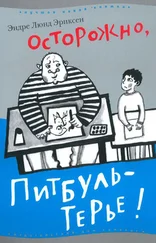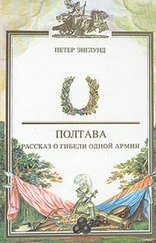“Our small and beautiful country is drowning in tourists. On the one hand, they are a holy terror; on the other hand they bring so much money to the country that we should clench our teeth and put up with them for a while longer.”
By the way, any psychoanalyst will probably conclude that it’s perfectly natural to hate something or somebody, on whom you feel more or less dependent upon.
There are, however, a few practical precautions a tourist can take to better his or her odds, such as trying to react quickly when in a crowded shop. To the local population, there’s nothing so irritating as a seemingly lobotomised foreigner who halts the queue with silly questions (“How much will that be in dollars?”) and eternal fumbling with money. If you manage not only to keep your money ready and pick up your stuff without halting the queue for an eternity, but also to utter Dobrý den! when you enter the shop and Na shledanou! when you leave, then you have contributed significantly to the improvement of tourists’ reputation in this country.
The same applies to foreign tourists who desperately press themselves into a tram, metro, bus, shop, or whatever without first letting the people inside get out (in the metro during rush hour, this can be downright dangerous). And similarly, when you are riding in a tram, metro, or bus, or visiting a shop, don’t detain the people who are waiting to enter, but get out as soon as possible.
Those are the easy rules. Others can be more challenging. For instance, when using any kind of public transport, younger passengers are expected to let older ones have their seats. But what age is required to have this privilege? In luckier instances, the elderly person (who can be practically of any age) waves some kind of ID to make you get up. In other cases, you just have to leave it to your judgement — or compassion.
Here, you should be aware of an especially tricky problem: pregnant women. Ignoring an expectant mother in need of a seat is (rightly) considered the zenith of bad taste and a really rude offence. On the other hand, you may commit an almost equally rude offence if you signalise that you believe a woman is pregnant by jumping up from your seat when she actually isn’t (see: Czech Cuisine). So, if the tram or metro you are riding is full of young, swollen ladies, you’d better not sit down at all.
What’s more, all public transport companies use controllers to catch passengers without tickets. To increase the effectiveness of the system, the revizoři (they identify themselves by flashing small badges which they hide in their palms) are paid according to the number of passengers caught, so quite logically, they systematically prey on confused and easily scared tourists. In fact, the chances you’ll meet a revizor are even greater than the chances you’ll be lifted by a pickpocket (which is rather high, and on tram No. 22 from Charles Square to the Prague Castle, close to 100 percent).
On principle, the revizoři don’t speak foreign languages, and they can be quite brutal, so unless you are fluent in Czech or carry a black belt in karate, don’t forget to buy a large number of tickets — and get them stamped! — before entering the metro, bus or tram.
When riding in a taxi, however, you risk trouble even if you behave like Mother Theresa. As already mentioned, Prague’s cab drivers are an amazingly ruthless bunch of predators, and innocent tourists with their pockets full of money and an inability to find their way in the city, are their favourite food.
The classic situation occurs when a foreign tourist stops a cab in the street, asks to be taken to some place four kilometres away, and then is charged 1,000 korunas for a trip that would normally cost a maximum of 200 korunas . Quite often, tourists who have dared to protest have gotten their faces smashed. Some years ago, it was even revealed that the most shrewd cabbies had installed electric wires in the passengers’ seats, so that rebellious passengers could be easily “convinced” to pay up with the help of a few volts shot to the scrotum.
Lately, the situation is said to have improved a bit, but tourists are still cheated on a massive scale. According to media reports, almost every other taxi operating in Prague is equipped with turbos . This is a device that makes the taximeter count kilometres with incredible speed, so when you ride from Wenceslas Square to the National Theatre, you risk paying for a trip from Prague to Plzeň.
There is only one protection against Prague’s cab mafia: never stop a taxi in the street. Order one by phone from a dispatcher, and always insist on getting a signed receipt. In such cases, any complaints may be addressed to the taxi dispatcher, who can check whether the bill is doctored, or not.
Finally, just one urgent recommendation: if you really want to confirm Czechs’ prejudices about stupid and clueless tourists, buy yourself a Soviet military cap or over-sized plush hat, and be sure to wear it in every museum, gallery and theatre you happen to visit. You’ll be loved!
Launched in 1994 with American money and much media fuss, TV Nova, the Czech Republic’s first nationwide private television channel, was an instant success. After only three months, Nova had beaten the pants off of dull Czech state television — ČTV — in the number of viewers, and advertising revenues were skyrocketing. From a commercial point of view, TV Nova can rightfully claim the title as one of the most lucrative media projects in all of post-communist Europe.
This tremendous success, however, was not a miracle. In a country where the media had been under strict state control for 50 years, a private and commercial television channel was regarded as a revolution, not least because Nova churned out a lethal mix of American sitcoms, Argentine soap operas, aggressive news releases, and home-grown innovations such as naked weather forecasters and talk shows about sex.
The only people taken by surprise by this low-browed mega-success were Czech intellectuals, who still lived under the delusion that the Czechs were an uncommonly cultivated lot (see: National Identity). However, if Nova was an unpleasant reminder of Czechs’ genuine cultural preferences, it also revealed some nasty truths about the country’s political realities.
First, when a sponsor scandal forced Václav Klausto resign as Prime Minister (see: Corruption; Pepa from Hong Kong) in 1997, Nova’s news program reported that the ex-Premier had secretly bought himself a luxury villa in Switzerland. The allegations eventually appeared to be undocumented, and Klaus demanded a staggering 100 million korunas from Nova in damages. However, after a private meeting with Nova’s charismatic boss Vladimir Železný, he suddenly dropped all charges. Is it a mere coincidence that Nova’s news releases from that day on have been strongly biased towards Klaus and his ODS party?
Secondly, when CME, Nova’s American investor kicked Železný out of his job as Nova’s managing director two years later, the shrewd professional launched a daring counter-attack: after acquiring fresh capital from unknown sources (Aleksandr Rebyonok, a Russianbusinessman based in Karlovy Vary, has been mentioned), he took a majority of the reporters with him and started up a “new” Nova. Despite vociferous protests from the Americans, who claimed Železný had behaved like a pirate and violated international rules, the Czech government at the time let him get away with his trick. The International Commerce Court in Stockholm, though, was not as tolerant. In 2003, it ruled that the Czech Republic must pay CME a staggering 10 billion korunas in compensation.
And third, when Czech authorities awarded a broadcasting license to Nova, they understood that the channel (based on a proposal by a group of respected sociologists) would deliver a mix of high-quality films, operas, and educational programmes that would “arouse envy” all over Europe. The reality, as became soon apparent, had not the slightest resemblance to culture. This is not so surprising, given that Nova was a commercial station from the very beginning, but it’s evident that the Nova people beat their competitors with a fraudulent bid.
Читать дальше








![Theresa Cheung - The Dream Dictionary from A to Z [Revised edition] - The Ultimate A–Z to Interpret the Secrets of Your Dreams](/books/692092/theresa-cheung-the-dream-dictionary-from-a-to-z-r-thumb.webp)



